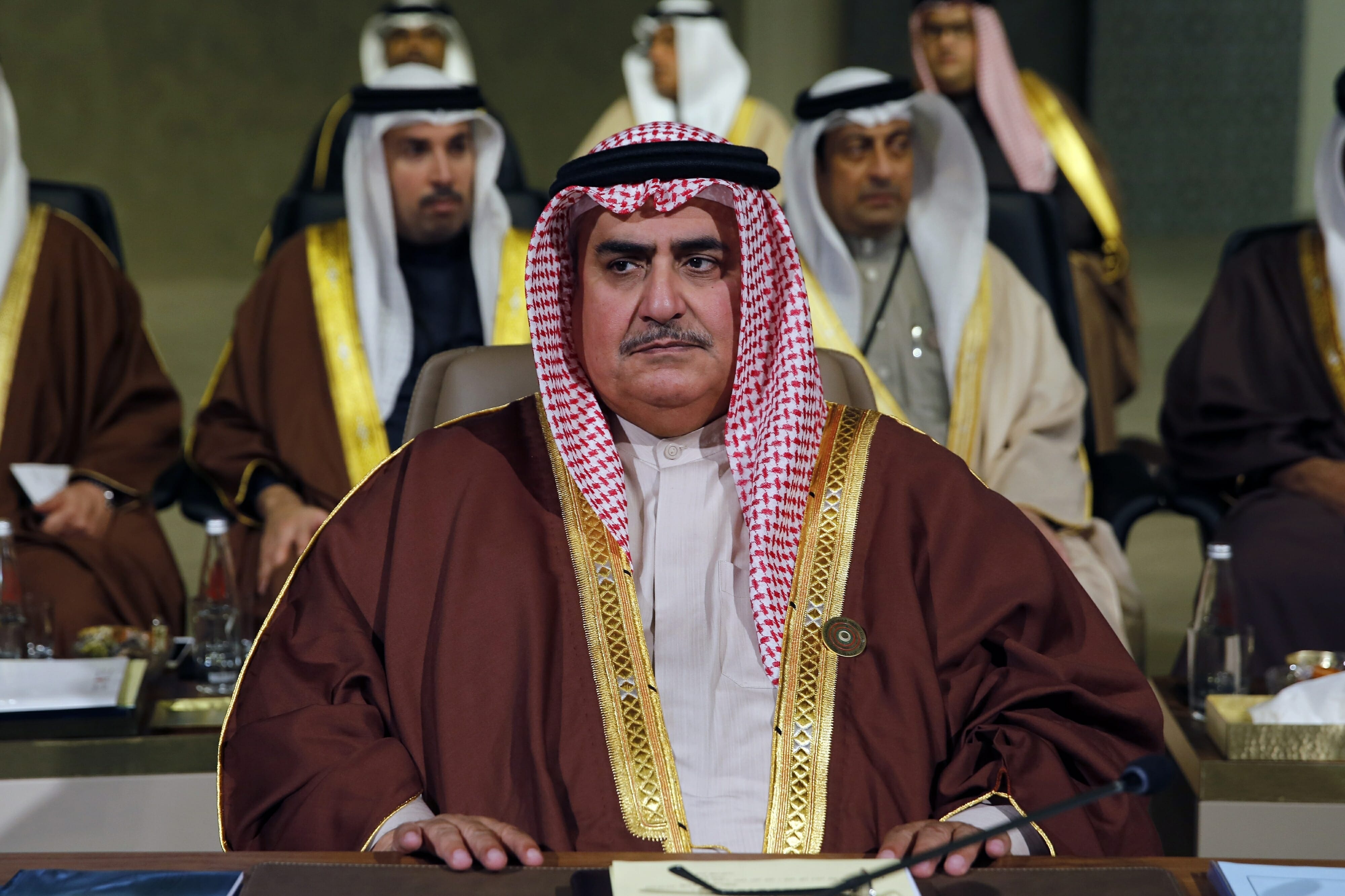
Bahrain defends decision to host White House Mideast meeting
DUBAI, United Arab Emirates (AP) — Bahrain on Tuesday defended its decision to host a White House-engineered conference to address the Israeli-Palestinian crisis, saying its only objective is to support the “brotherly Palestinian people.”
The Palestinian Authority has rejected the economic conference planned for next month, which is part of the rollout of the White House’s long-awaited Israel-Palestinian plan, saying any peace effort that ignores the Palestinian people’s aspirations for an independent state is doomed to fail. A senior Palestinian official has likened the White House plan to “financial blackmail “.
Bahrain’s foreign minister, Sheikh Khalid bin Ahmed Al Khalifa, tweeted that his country respects the Palestinian leadership’s steadfast position safeguarding Palestinian rights.
He said that both the official and popular position of Bahrain “has been and continues to be championing the brotherly Palestinian people in the restoration of their legitimate rights in their land and an independent state with its capital as east Jerusalem, additionally economically supporting the Palestinian people.”
The minister added that “there’s no other purpose” in hosting the conference than Bahrain’s continued support of the Palestinians.
His comments highlight the uneasy balance some Gulf Arab leaders are attempting to strike as their once quiet ties with Israel grow tighter and more public in the face of shared enemy Iran. The region’s public, though, remains sensitive to the Israeli occupation and Palestinian demands for independence while the Al-Aqsa Mosque compound in east Jerusalem holds religious significance to Muslims around the world.
In recent weeks, civil society groups in Bahrain took to Twitter to protest a visit to Manama by an Israeli delegation to a global entrepreneurship summit. Bahrain’s lower house of parliament also issued a statement rejecting the visit.
Meanwhile, the Trump administration is working to rally key Arab states, like Saudi Arabia, the UAE, Bahrain, Qatar and others, to help bankroll economic incentives that could get Palestinians to buy into its Mideast plan.
The plan, which has been two years in the making, envisions large-scale investment and infrastructure work in the Palestinian territories. But the central political elements remain mostly unknown. President Donald Trump’s senior adviser and son-in-law, Jared Kushner, and Jason Greenblatt, envoy of international negotiations, have been leading efforts to write the plan, but so far, there’s been no participation from the Palestinians.
U.S.-based Rabbi Marc Schneier, who was appointed special adviser by Bahrain’s King Hamad bin Isa Al Khalifa, said he knows of no other Gulf leader that has been more preoccupied with establishing relations with Israel and bringing other Gulf states onboard. The tiny island nation of Bahrain is a close U.S. ally and hosts the U.S. Navy’s Fifth Fleet.
Schneier said King Hamad told him in a 2016 meeting in the palace that “our only hope for a strong, moderate Arab voice in the Gulf is a strong Israel.” He noted that the king also sent an interfaith delegation from Bahrain to Jerusalem not long after the Trump administration moved the U.S. Embassy from Tel Aviv to Jerusalem in recognition of it as Israel’s capital.
“It’s not a question of Bahrain being a participant. They have led this effort, at least since I’ve known the king for eight years,” Schneier said, adding that it’s no wonder that the king “would embrace” the opportunity to host the Mideast meeting.
Kristin Smith Diwan, a scholar at the Arab Gulf States Institute in Washington, said Gulf societies appear to be much less comfortable than their governments with the warming relations that are taking place with Israel before a political settlement with the Palestinians is reached.
She said when the Bahraini foreign minister expresses the country’s traditional support for a Palestinian state while hosting this conference, people understand the political significance lies more in the latter.
“It is a big change from when Gulf states publicly competed in their support for the Palestinian cause,” Diwan said.
The conference, running June 25-26 in Bahrain, will not address the most contentious parts of the conflict: borders, the status of Jerusalem, Palestinian refugees and Israel’s security.
The Western Journal has not reviewed this Associated Press story prior to publication. Therefore, it may contain editorial bias or may in some other way not meet our normal editorial standards. It is provided to our readers as a service from The Western Journal.
Truth and Accuracy
We are committed to truth and accuracy in all of our journalism. Read our editorial standards.
Advertise with The Western Journal and reach millions of highly engaged readers, while supporting our work. Advertise Today.












